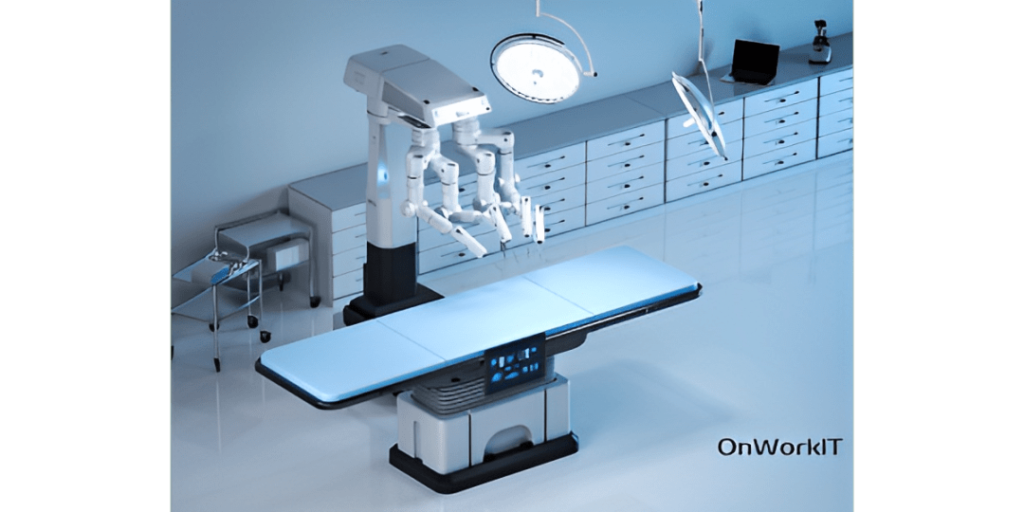Accenture Labs and Biogen are using quantum computing to speed up drug discovery.Quantum Computing experts in R&D
The Challenge of Change
For pharmaceutical companies, discovering new drugs and bringing them to market can take more than 10 years and often costs billions of dollars.
Thanks to optimization, sampling, and machine learning algorithms, quantum computing promises to revolutionize the way complex business problems are solved, approaching them from a completely new angle. In collaboration with quantum software provider 1QBit, the Accenture Labs team has embarked on quantum experiments in the business world.
With the democratization of quantum computers, it will be possible to compare complex molecules. The result: faster pharmaceutical advancements and more treatments targeting a wide range of diseases.
The Alliance of Technology and Human Ingenuity
A pioneer in biotechnological innovation, Biogen is undoubtedly at the forefront of pharmaceutical research and development. Its mission is to treat and eventually cure neurological and neuron-degenerative diseases.
Today, classical computers enable pharmaceutical labs to make hundreds of millions of comparisons. However, limited by their computing power, they can only process molecules up to a certain size.
Accenture Labs collaborated with 1QBit, a company offering a quantum application platform and APIs with pre-developed algorithms. The goal was to adapt the cloud API and pre-developed molecular comparison algorithm to meet Biogen’s pharmacophore requirements. Accenture and Biogen made a breakthrough: they verified that the quantum computing-based molecular comparison method produced results similar to or better than existing methods. This advancement suggests that quantum computing could significantly improve the drug discovery process and patient outcomes.Quantum computers provided more contextual information on the common features of compared molecules, whereas the classical approach could only deduce feature matches.
Quantum Computing Helps Biogen Scientists Advance Drug Discovery

Quantum computing has enabled scientists and researchers at Biogen to know exactly how and why molecular bonds match up, providing them with high-quality, actionable information that could speed up the design and discovery of drugs.
New R&D in the Pharmaceutical Industry
Accenture and Biogen have confirmed that the quantum computing-based molecular comparison method gives results that are similar to or better than existing methods. This breakthrough suggests that quantum computing could significantly improve the drug discovery process and outcomes for patients.
Based on this research, Accenture has developed a quantum molecular comparison application for Biogen, which offers several clear advantages over traditional computing.
Revolutionizing Molecular Comparison
Working with Biogen, researchers at Accenture Labs identified the most beneficial quantum optimization processes for the company. Currently, pharmaceutical companies and those in materials science use various intensive computing methods to examine molecular combinations and predict the positive effects of potential therapeutic approaches, while minimizing their side effects. Clearly, quantum computing can outperform existing computational methods here and enhance results.
Quantum Computing Experts Helps Biogen Scientists Advance Drug Discovery

Quantum computing has enabled scientists and researchers at Biogen to know exactly how and why molecular bonds match up, providing them with high-quality, actionable information that could speed up the design and discovery of drugs.
New R&D in the Pharmaceutical Industry
Accenture and Biogen have confirmed that the quantum computing-based molecular comparison method gives results that are similar to or better than existing methods. This breakthrough suggests that quantum computing could significantly improve the drug discovery process and outcomes for patients.
Based on this research, Accenture has developed a quantum molecular comparison application for Biogen, which offers several clear advantages over traditional computing.
Revolutionizing Molecular Comparison
Working with Biogen, researchers at Accenture Labs identified the most beneficial quantum optimization processes for the company. Currently, pharmaceutical companies and those in materials science use various intensive computing methods to examine molecular combinations and predict the positive effects of potential therapeutic approaches, while minimizing their side effects. Clearly, quantum computing can outperform existing computational methods here and enhance results.
Results That Make a Difference
In just two months, Accenture Labs, 1QBit, and Biogen have moved from discovering and experimenting with quantum computing to proving the concept (PoC). This has validated the quantum approach to molecular comparison and led to a functional quantum application with transparent processes. It can generate results from molecular comparisons, providing valuable insights into common characteristics.
Biogen has chosen to combine its traditional molecular comparison method (which assesses millions of molecules) with this quantum application, delivering detailed and contextual information on specific results.
Quantum computing allows Biogen to delve deeper and gather insights on selected outcomes, giving them a competitive edge with shorter time-to-market and cost savings.
FAQs
Who is the leading researcher on quantum computing?
When it comes to quantum computing, one name that often comes up is David Deutsch. He is widely regarded as the father of quantum computing due to his groundbreaking work in the 1980s, where he proposed the concept of a universal quantum computer. Another key figure is Peter Shor, who developed the famous Shor’s algorithm, which can efficiently factorize large numbers, a task that is cumbersome for classical computers.
Who is leading in the development of quantum computing?
Quantum computing is advancing at a rapid pace, with several key players leading the charge. Companies like IBM, Google, and Microsoft are at the forefront, investing heavily in research and development. IBM’s Quantum Experience and Google’s Sycamore processor have made significant strides, pushing the boundaries of what’s possible in this cutting-edge field.
Who are the leading researchers in quantum mechanics?
Quantum mechanics, the theoretical backbone of quantum computing, has seen contributions from numerous brilliant minds. Richard Feynman, John Bell, and David Bohm are some of the renowned figures in this domain. Today, researchers like John Preskill, known for his work on quantum error correction, and Peter Shor, who developed Shor’s algorithm, continue to drive innovation.
Who are the leaders in quantum computing?
Apart from corporations, several academic institutions and research labs are pivotal in quantum computing. The Massachusetts Institute of Technology (MIT), the University of California, Berkeley, and the University of Oxford are among the academic leaders. Additionally, the research contributions from institutes like the Max Planck Institute and IBM’s Thomas J. Watson Research Center are indispensable.
Who is the father of quantum computing?
Richard Feynman is often hailed as the father of quantum computing. His visionary idea, proposed in the 1980s, suggested that quantum mechanics could be harnessed to solve problems that classical computers couldn’t handle. His pioneering work laid the groundwork for the quantum computers we are developing today.
Who is the most advanced in quantum computing?
Determining who is the most advanced in quantum computing can be subjective, but companies like Google and IBM are frequently mentioned. Google’s Sycamore processor achieved quantum supremacy in 2019, performing a calculation that would be impractical for classical computers. IBM’s continual advancements and their Quantum Network, offering cloud-based access to quantum processors, also position them as a leading force in the field.









